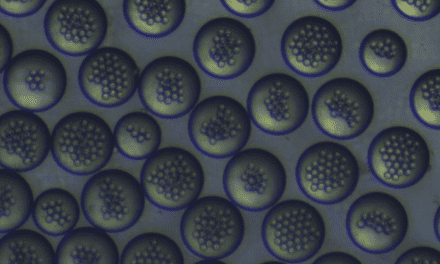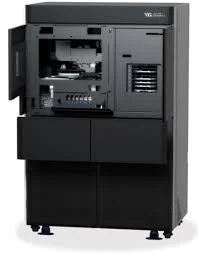At the beginning of April, FDA will host a public workshop on “Advancing Regulatory Science for High-Throughput Sequencing Devices for Microbial Identification and Detection of Antimicrobial Resistance Markers” at the agency’s White Oak campus in Silver Spring, Md.
According to the agency’s announcement in the Federal Register (7 March 2014), the purpose of the workshop is “to discuss the clinical and public health applications and performance validation of these devices, the quality criteria for establishing the accuracy of reference databases for regulatory use, and ways to streamline clinical trials for microbial identification. This discussion is essential to establish the safety and effectiveness of high throughput sequencing devices when used to test human specimens or clinical isolates for the diagnosis of infectious diseases and detection of antimicrobial resistance markers.”
In advance of the meeting, registered attendees will receive a draft of FDA’s proposed concept for the performance evaluation of high-throughput sequencing devices for microbial identification and detection of antimicrobial resistance markers. Additional information, including a workshop agenda, will be available at a later date.
In its Federal Register notice, FDA provided the following information as context for the workshop.
Background
High-throughput sequencing devices for the diagnosis of infectious diseases, including detection of antimicrobial resistance markers, are a new generation of diagnostic products that have the capability to simultaneously identify and differentiate a large number of microbial pathogens using a single clinical specimen or clinical isolate. These devices have already emerged as a critical tool in many research areas and soon they will become both a fixture in clinical microbiology reference laboratories and a routine part of diagnostic laboratory workflows.
Use of this technology requires a process of sample/library preparation, sequencing, and output deconvolution/results interpretation. The identification of the organism or resistance marker is often based on genomic sequence information in comparison to reference databases that were created by the device manufacturer or are otherwise publicly available.
High-throughput sequencing devices have the potential to dramatically change clinical microbiology. These diagnostic devices present several advantages, such as identifying potential disease etiology in situations where many different pathogens share a common clinical manifestation without the need for any a priori target-specific information to select the appropriate test. However, the processes of selecting the methods used to establish and validate the performance of these devices to make informed clinical and public health decisions pose significant scientific and regulatory challenges.
The purpose of the public workshop is to discuss the implementation of high-throughput sequencing devices for the diagnosis of infectious disease. Specifically, FDA seeks input from clinical laboratories, infectious disease physicians, industry, government, academia, and other stakeholders on the following topics: clinical applications and public health needs; device performance validation; reference databases; and ways to streamline clinical evaluations/trials for microbial identification. This information is viewed as essential in establishing the safety and effectiveness of high-throughput sequencing devices when used for the clinical diagnosis of infectious diseases and markers of antimicrobial resistance from human specimens or clinical isolates.
Workshop Overview
The public workshop will consist of brief presentations providing information to frame the goals of the workshop and an interactive discussion. The presentations will focus on current and anticipated uses for high-throughput sequencing devices, a proposal for the performance evaluation approach preferred by FDA, and information on the criteria for acceptable reference databases.
Following the presentations there will be a moderated discussion where the participants will be asked to provide their individual perspectives. The outcome of the meeting will be captured and released as a draft guidance document.
The draft guidance document is expected to be available at a later date. This information will be placed on file in the public docket (Docket no. FDA-2014-D-0191), which is available at www.regulations.gov. The information will also be available at www.fda.gov/medicaldevices/newsevents/workshopsconferences/default.htm (select the appropriate workshop from the list).
Topics for Input
FDA will seek input on its proposed performance evaluation approach, which will include the following topics:
- Clinical applications and public health needs: Identify specific applications where high-throughput sequencing could be used for diagnosis of infectious diseases and markers of antimicrobial resistance from human specimens or clinical isolates.
- Device validation: Develop and adapt standards for the microbial genome sequencing process (from sample collection to result reporting); discuss best practices for sample/library preparation, variant identification, genome annotation, output deconvolution/results interpretation, and reporting.
- Reference databases: Develop quality criteria to establish accurate reference databases, methods for curating, maintaining, and updating these databases.
- Streamline clinical evaluations/trials for microbial identification: Establish a new comparator paradigm for high-throughput sequencing as the reference method to augment or replace existing reference testing methods.
The public workshop will be held on 1 April 2014, from 9 a.m. to 4:30 p.m., at the FDA White Oak Campus, 10903 New Hampshire Ave., Bldg. 31 Conference Center, the Great Room (Rm. 1503), Silver Spring, MD 20993-0002.
Registration for the workshop is free and on a first-come, first-served basis. Persons interested in attending the workshop must register online by 5 pm on 25 March 2014. Early registration is recommended because seating is limited.
To register for the workshop, visit FDA’s Medical Devices News & Events-Workshops & Conferences calendar, and select the appropriate meeting from the list. For assistance with registration, contact Susan Monahan at (301) 796-5661.



